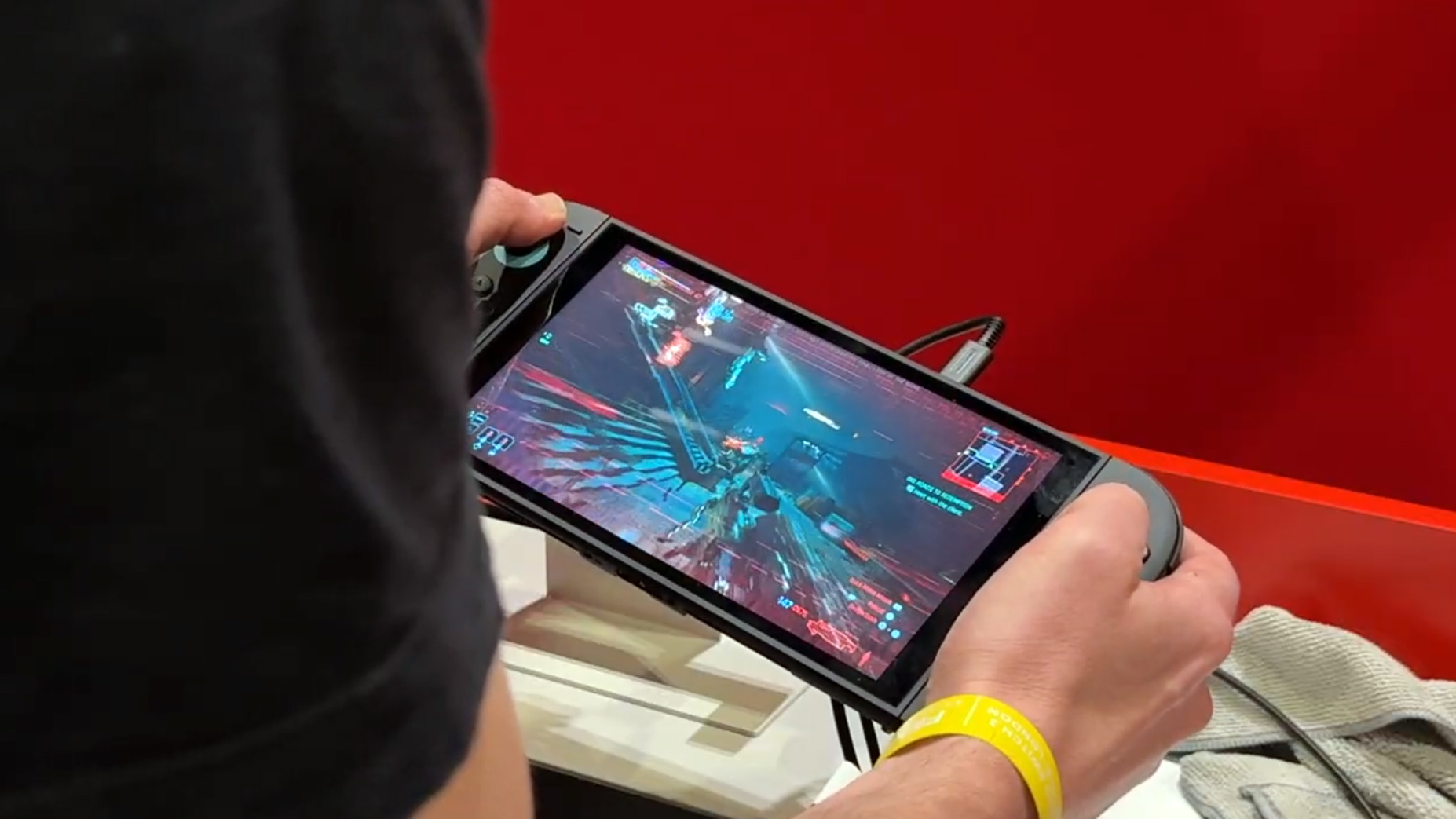Dell XPS 13 vs. MacBook Air 13-inch M3: Which laptop is better for you?
Which 13-inch laptop should you buy?
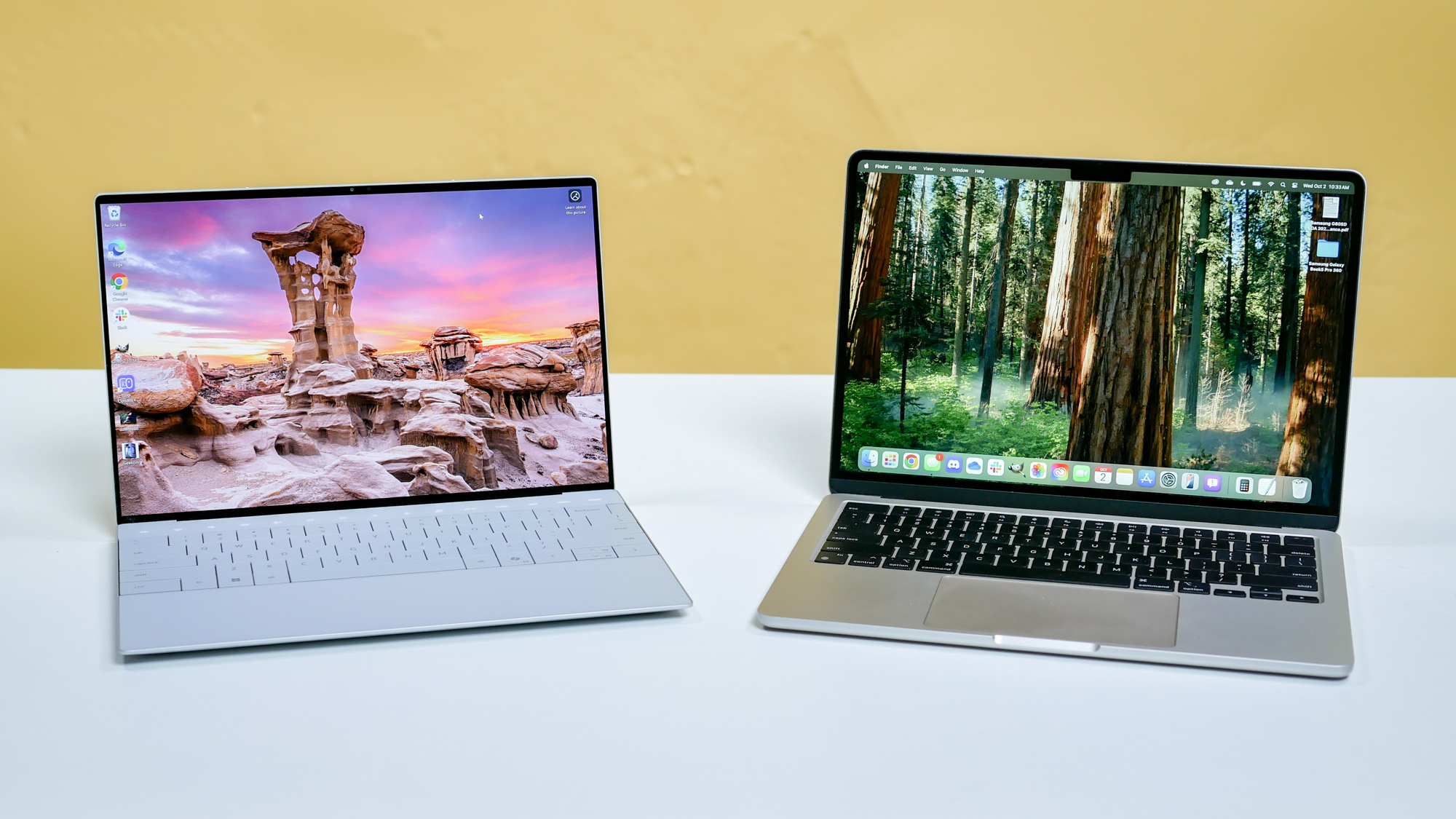
It’s time to once again pit the Dell XPS 13 vs. the MacBook Air to see which 13-inch laptop is best for you. While this conversation usually ends with one’s preferred operating system — either Windows 11 or macOS Sequoia — there are other important factors to consider.
This annual match-up is different than usual, because the new Dell XPS 13 has two main processor options: Intel Lunar Lake and Qualcomm Snapdragon X. Thanks to these chips, particularly Intel Lunar Lake and Snapdragon X Elite, the Dell XPS 13 matches or even exceeds the MacBook Air in performance and battery life. Because of that, choosing between these laptops has become harder than ever if you’re not married to a specific operating system.
Below, I’ll cover the key differences between the Dell XPS 13 vs. MacBook Air 13-inch M3 to see which is right for you.
Dell XPS 13 vs MacBook Air 13-inch M3: Specs
| Header Cell - Column 0 | Dell XPS 13 (Lunar Lake, non-OLED) | Dell XPS 13 (Snapdragon X Elite) | MacBook Air 13-inch M3 |
|---|---|---|---|
| Price | $1,399 | $1,199 | $1,099 |
| Display | 13.4-inch (1920 x 1200) | non-touch 30-120Hz | 13.4-inch (1,920 x 1,200) non-touch ISP 60-120Hz | 13.6 inches (2,560 x 1,664) |
| CPU | Intel Core Ultra 7 258V | Snapdragon X Elite X1E-80-100 | 8-core CPU |
| GPU | Intel Arc Graphics | Qualcomm Adreno | 8-core GPU |
| Memory | 16GB | 16GB | 8GB |
| Storage | 512GB | 512GB | 256GB |
| Ports | 2x Thunderbolt 4/USB-C | 2x Thunderbolt 4/USB-C | 1x MagSafe, 2x Thunderbolt / USB-4, 1x headphone jack |
| Dimensions | 11.6 x 7.8 x 0.6 inches | 11.6 x 7.8 x 0.6 inches | 11.9 x 8.4 x 0.4 inches |
| Weight | 2.6 pounds | 2.6 pounds | 2.7 pounds |
Dell XPS 13 vs MacBook Air 13-inch M3: Price
The Dell XPS 13 with Lunar Lake starts at $1,399 and has a 13.4-inch (1920 x 1200) non-touch ISP display, an Intel Core Ultra 7 256V chip, 16GB of RAM and 512GB of storage. The Snapdragon X Elite model starts at $1,199 and has a 13.4-inch (2560 x 1600) non-touch IPS display, a Snapdragon X Elite X1E-80-100 chip and the same amount of RAM and storage as the Lunar Lake model.
The MacBook Air 13-inch M3 is now available from Apple's website starting at $1,099. This configuration features an Apple M3 chip with an 8-core CPU and 8-core GPU, 8GB of unified memory (RAM) and 256GB of SSD storage. If you want to upgrade to a 10-core GPU and 16GB of RAM, it’ll cost $100 and $200, respectively.
Price-wise, the MacBook Air wins since its starting model is cheaper than the Dell XPS 13. The latter also gets more expensive if you go for an OLED model. So if you’re on a budget, get the MacBook Air 13-inch.
Dell XPS 13 vs MacBook Air 13-inch M3: Design
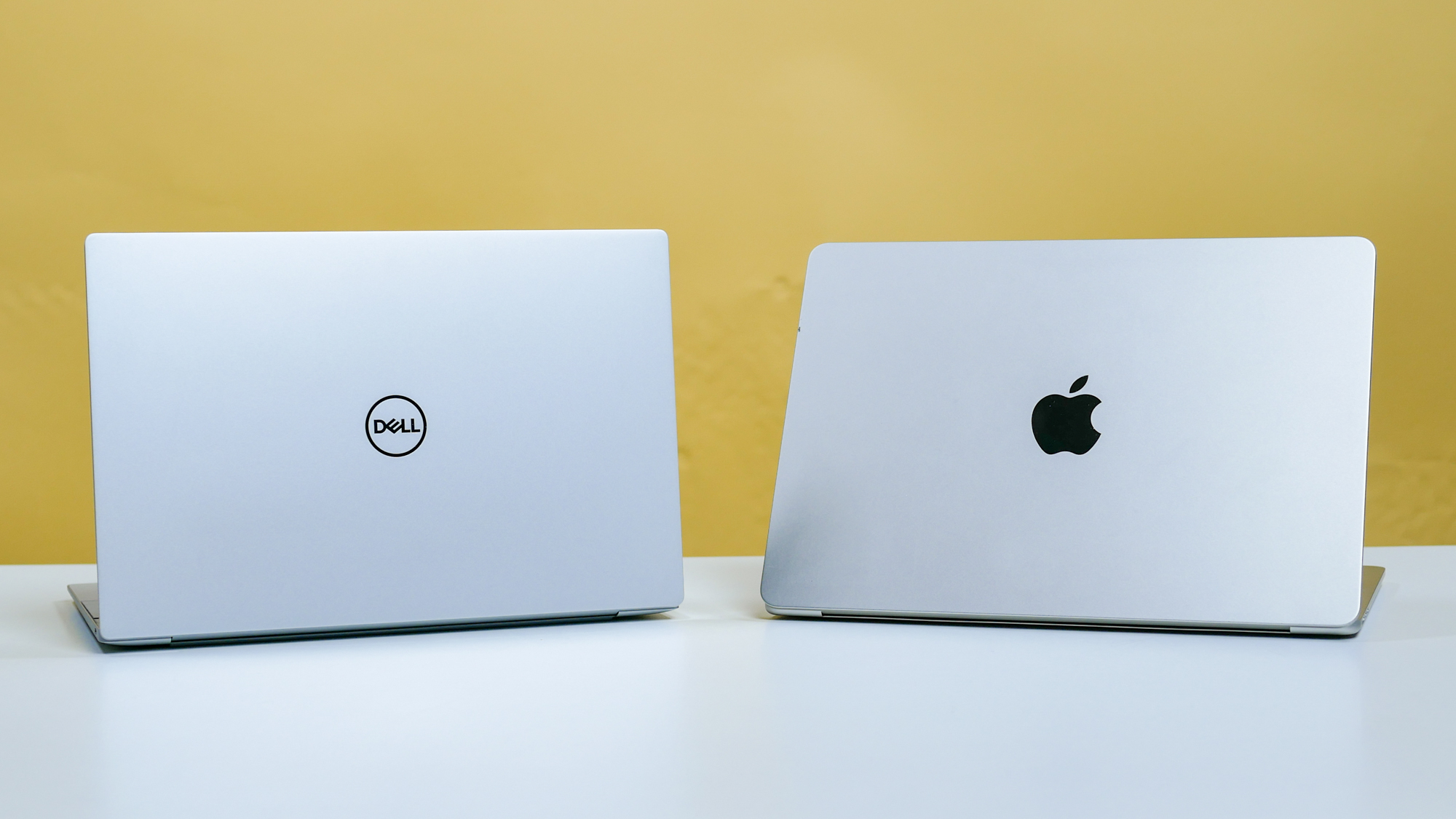
All 2024 XPS laptops share the same controversial design as the XPS 13 Plus. The touchpad is invisible and there is no physical function row. There’s also virtually no spacing between the tightly packed keys. As I said in my reviews of the Dell XPS 13 and Dell XPS 14, this design isn’t my favorite but I don’t entirely hate it either.
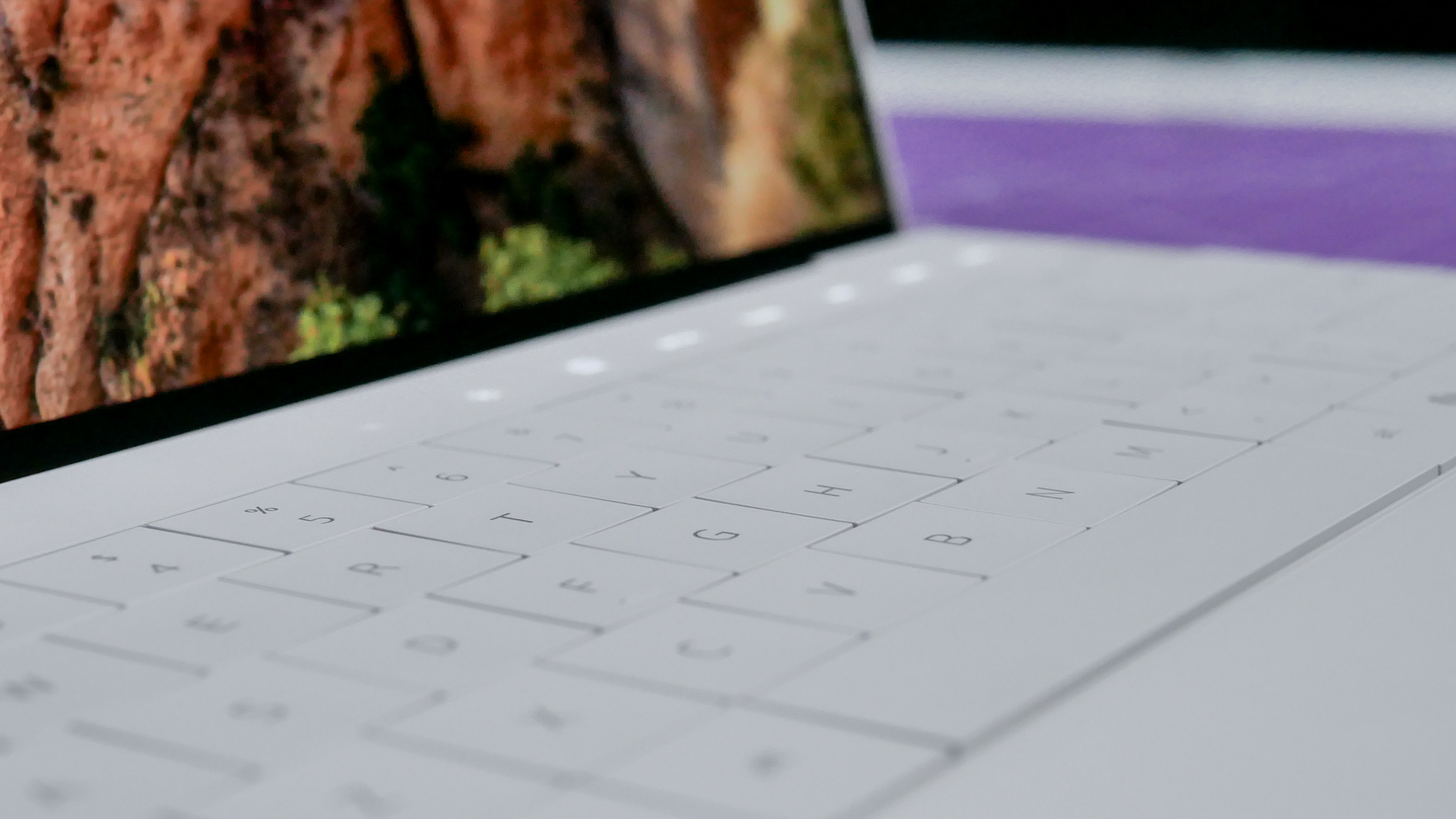
The Dell XPS 13 both looks and feels nice thanks to its aluminum chassis and Gorilla Glass 3 keyboard. At 11.6 x 7.8 x 0.6 inches and 2.6 pounds, this XPS 13 is perfectly suited for travel. Even if it’s missing a function row and visible touchpad, there’s no denying that this is an elegant notebook.
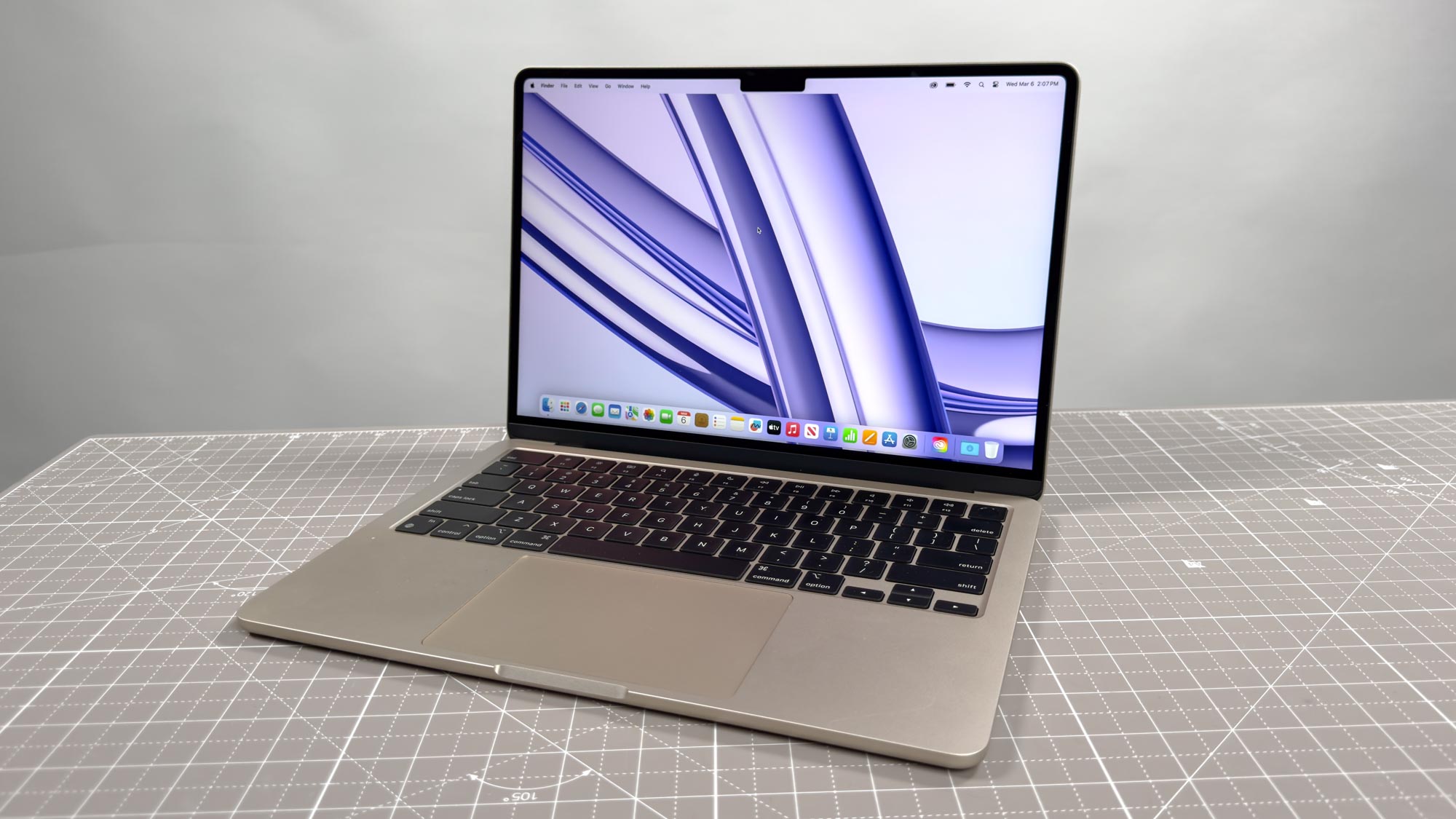
The MacBook Air's 13-inch design hasn’t changed from the previous iteration, which is great for those who like the flat, utilitarian aesthetic. As always, this MacBook lives up to its “Air” moniker since it’s so thin and light. Like the Dell XPS 13, this laptop is so ultraportable that you might forget it’s in your travel bag.
The MacBook Air has an advantage over the Dell XPS 13 when it comes to port selection. Like the Dell XPS 13, the MacBook Air only has two USB-C ports. However, it has a MagSafe port which frees up one of the USB-C ports. The MacBook Air also has a headphone jack.
Design is subjective but in this case, the MacBook Air has clear advantages over the Dell XPS 13. Not only does it have a traditional laptop design, but it also has more ports.
Dell XPS 13 vs MacBook Air 13-inch M3: Display
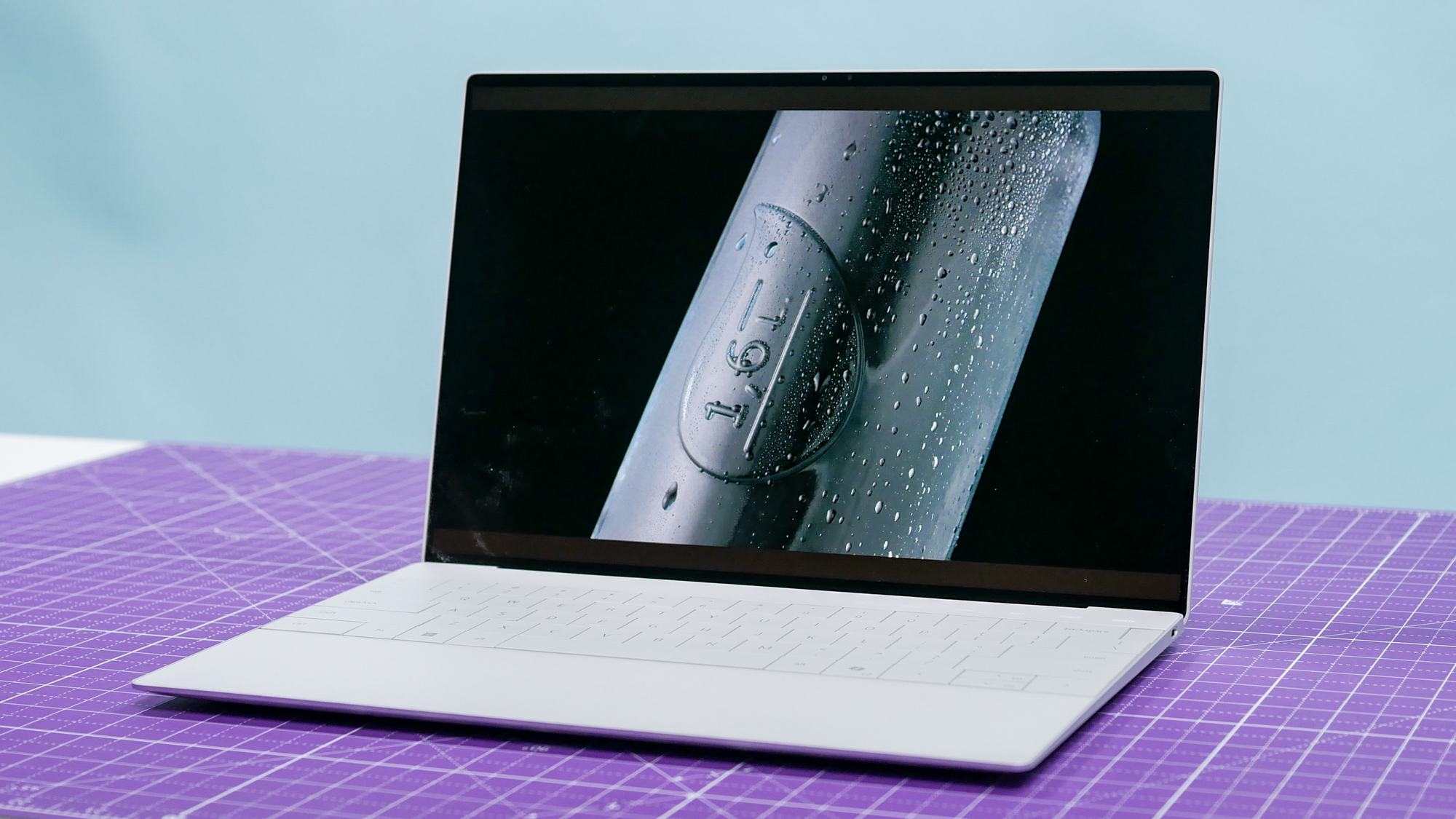
The 13-inch MacBook Air M3 has the same display as the MacBook Air M2. Whether it’s a YouTube video or your favorite Apple Arcade game, everything looks bright and colorful on the 13.6-inch (2,560 x 1,664) screen. Other than the notch at the top of the display, there's little to complain about here.
The entry-level Dell XPS 13 has a similar display to the XPS 13, though it doesn’t get as bright and its colors are less saturated. If this were a contest between these two display types, I’d give the edge to the MacBook Air because it’s brighter and more colorful. However, the Dell XPS has something the MacBook Air doesn’t: an OLED option.
| Header Cell - Column 0 | Dell XPS 13 (Lunar Lake) | Dell XPS 13 (Snapdragon X Elite) | MacBook Air 13-inch M3 |
|---|---|---|---|
| Nits (brightness) | 377 (SDR) | 415 (HDR) | 455.8 (SDR) | 476.4 (SDR) | 496 (HDR) |
| sRGB | 204.8% | 94.4% | 109.8% |
| DCI-P3 | 144.6% | 66.9% | 77.8% |
| Delta-E | 0.28 | 0.21 | 0.21 |
The Dell XPS 13 is the world’s first laptop to feature a tandem OLED screen option. In case you’re wondering, yes, that’s the same display tech featured on the iPad Pro M4. Like that tablet, the Dell XPS 13’s OLED screen delivers inky blacks, retina-scorching whites and vibrant colors. This is the most beautiful laptop display my eyes have ever seen.
For their respective entry-level models, the Air has the better display. But for pure eye candy, the XPS 13 with a tandem OLED panel is the winner.
Dell XPS 13 vs MacBook Air 13-inch M3: Performance
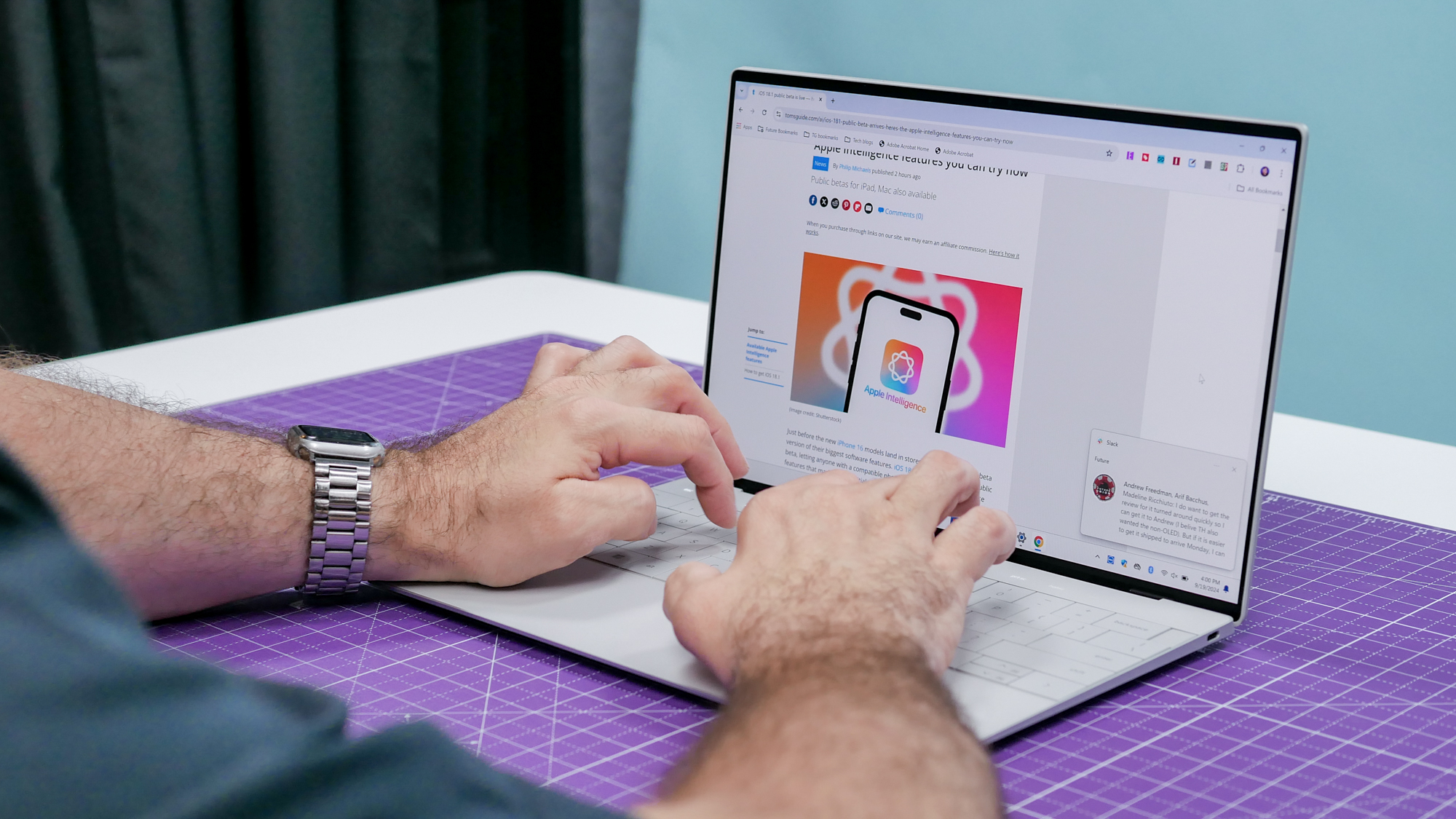
Discussing performance isn’t as clear-cut as you’d think since there are three different processors to account for: Intel Lunar Lake, Snapdragon X Elite and Apple M3. That said, there is a clear winner when it comes to performance.
On Geekbench 6, which measures overall CPU performance, the Lunar Lake and Snapdragon X Elite-powered laptops are neck-and-neck in the single-core portion of the test — though the MacBook Air beats both here. However, the Snapdragon X Elite XPS 13 outpaces both its counterpart and the MacBook Air in the multi-core benchmark.
| Header Cell - Column 0 | Dell XPS 13 (Lunar Lake) | Dell XPS 13 (Snapdragon X Elite) | MacBook Air 13-inch M3 |
|---|---|---|---|
| Geekbench 6 (single/multi-core) | 2,772 / 11,033 | 2,797 / 14,635 | 3,082 / 12,087 |
| Handbrake (mins:secs) | 8:28 | 4:41 | 7:40 |
The Snapdragon X Elite-driven XPS 13 also reigned supreme in our Handbrake video editing test, which involves transcoding a 4K video clip to 1080p. This machine performed the task in a zippy 4 minutes and 41 seconds, which is nearly twice as fast as the Lunar Lake and Apple M3 laptops.
If you want a 13-inch laptop with spectacular performance, then you’ll want a Dell XPS 13 packing a Snapdragon X Elite chip.
Dell XPS 13 vs MacBook Air 13-inch M3: Battery life
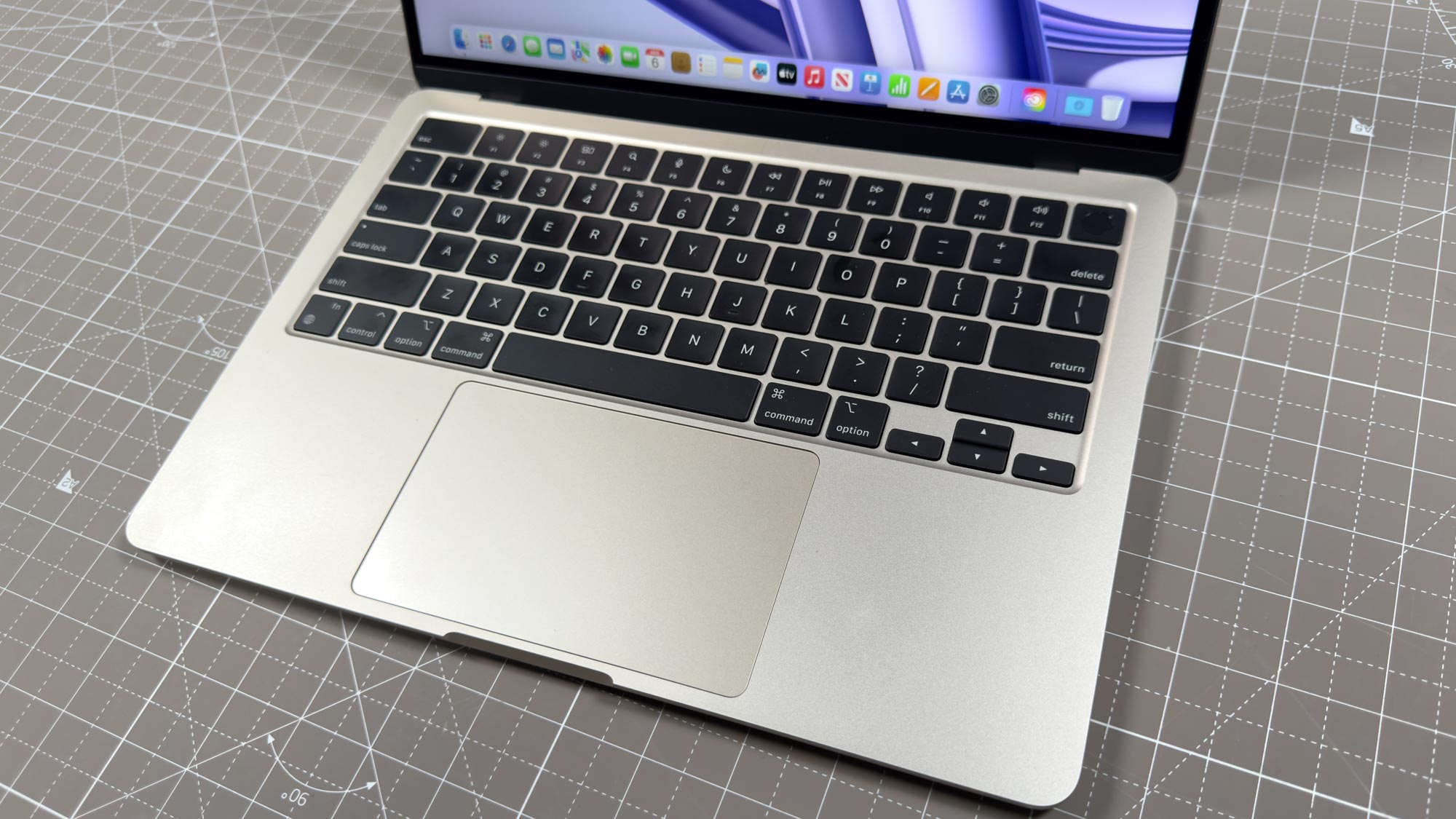
The MacBook Air has consistently bested the Dell XPS 13 for battery life ever since Apple introduced MacBooks with M-series chips. However, things are different now that Lunar Lake and Snapdragon X Elite have arrived. But no matter which laptop you go for, you’ll get a device that will run for well over a day.
In our battery test involving continuous web surfing over Wi-Fi with a device’s display set to 150 nits of brightness, all three laptops we tested did incredibly well. The XPS 13 with Snapdragon X Elite lasted a mind-boggling 20 hours and 51 minutes, making it the longest-lasting consumer-grade laptop we’ve ever tested.
| Header Cell - Column 0 | Time (hours:mins) |
|---|---|
| Dell XPS 13 (Lunar Lake, OLED) | 8:40 |
| Dell XPS 13 (Lunar Lake, non-OLED) | 17:29 |
| Dell XPS 13 (Snapdragon X Elite) | 20:51 |
| MacBook Air 13-inch M3 | 15:13 |
Behind it is the Lunar Lake XPS 13, which lasted for an astonishing 17 hours and 29 minutes. The MacBook Air 13-inch M3 comes in third place, lasting for 15 hours and 13 minutes.
The non-OLED Dell XPS 13 models we tested are extremely energy efficient, but the same isn’t true for the OLED model. In the same test, our review unit endured for 8 hours and 40 minutes. There was a time when that would’ve been fantastic battery life, but anything less than 12 hours of battery life is paltry nowadays. So if you plan to get the OLED model, you’ll have to contend with significantly reduced battery life.
Dell XPS 13 vs MacBook Air 13-inch M3: App compatibility
This section is a bit interesting since I’m really discussing the two XPS 13 models. Still, app compatibility could be a deciding factor between the Lunar Lake and Snapdragon X Elite versions of the Dell XPS 13.
Since Snapdragon X Elite is an Arm-based chip, it won’t run various apps and games. This includes apps like the desktop version of Google Drive and a handful of Adobe apps such as Premiere Pro and After Effects. Games like Halo: Infinite are also incompatible with Arm devices. But in all fairness, none of the XPS 13 laptops are suitable for playing the best PC games since they lack discrete GPUs.
Since Lunar Lake is an x86 processor and not Arm, you won’t have to worry about app compatibility with your favorite Windows apps and games. Beyond performance and battery life, this could be a major factor in deciding which XPS 13 model you want to buy.
Dell XPS 13 vs MacBook Air 13-inch M3: Bottom line
If you’re not tied to a specific operating system, choosing between a Dell XPS 13 and MacBook Air in 2024 isn’t as easy as it used to be. However, key differences could help you decide which is best for you.
If the Dell XPS 13’s unusual design isn’t to your liking and you’d prefer a standard-looking laptop with a full function row and a visible touchpad, then get the MacBook Air M3. Apple’s notebook is also the best choice if you’re on a budget but still want a great machine with little compromises.
The Dell XPS 13 is a brilliant choice thanks to its fast performance and insanely long battery life. And even if it means sacrificing the latter, the tandem OLED option the Dell XPS 13 offers is a sight to behold. Its design is certainly contentious, and potentially a deal-breaker for some. But overall it's an amazing Windows laptop.
More from Tom's Guide
Sign up to get the BEST of Tom's Guide direct to your inbox.
Get instant access to breaking news, the hottest reviews, great deals and helpful tips.

Tony is a computing writer at Tom’s Guide covering laptops, tablets, Windows, and iOS. During his off-hours, Tony enjoys reading comic books, playing video games, reading speculative fiction novels, and spending too much time on X/Twitter. His non-nerdy pursuits involve attending Hard Rock/Heavy Metal concerts and going to NYC bars with friends and colleagues. His work has appeared in publications such as Laptop Mag, PC Mag, and various independent gaming sites.
